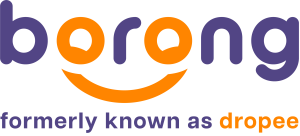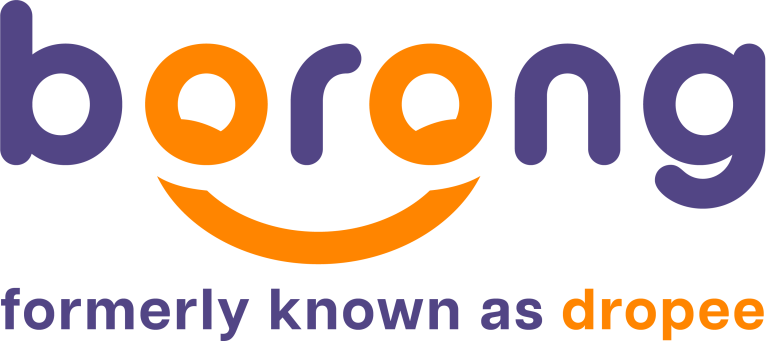How To Start A Cafe From Scratch

Starting a cafe is a dream for many people keen on operating their own business. Unfortunately, it’s not always clear what a person needs to do to get started. So if you’re looking for a guide on lauching your own cafe from scratch, you’ve come to the right place!
Let’s get started!
Starting A Cafe: A Step-By-Step Guide
Step 1: Understand Your ‘Why’
The first step to opening your own cafe is to sit down and think about your ‘Why’. This step is arguably one of the most important, even if it doesn’t seem like a big deal at first glance.
Starting a cafe is like running any other kind of business in the sense that it will get challenging. When times are tough, and you’re tempted to give up, holding onto your ‘Why’ will help you keep going.
Remember: there is no right or wrong answer to this. Everyone starts their business for a combination of personal and professional reasons that differ from anyone else’s.
So, take some time to understand your motivations for starting a cafe. Don’t be afraid to dig deep and be honest with yourself about it.
Step 2: Design Your Menu
Next, you’ll want to carefully consider what your cafe menu will look like More specifically, you’ll need to decide what items to offer your customers.
Remember: more isn’t always better. Instead, it’s better to focus your efforts on making a few items to the best of your abilities, perhaps with a few other things complements your main offerings.
For example, a coffee house menu focuses primarily on brewed beverages while having light food items. Alternatively, you can choose to do the opposite and focus more on food items and match them with a shorter beverage list.
Step 3: Come Up With A Business Plan
As you think about your ‘Why’ and your menu, you can get started on the third step: devising a business plan. Its purpose is all in the name: it’s a document where you spell out all your plans for starting and running your cafe business.
So, for example, your business plan will include details like the following:
- Location: Your plan should include possible places to set up your cafe. Your cafe location should be where your target market can find you, and the rental costs should fit your budget.
- Target Market: Knowing your target market from the start is key. These are the kinds of people you plan to attract to your business, such as families, coffee enthusiasts, and more.
- Necessary equipment: Some cafes need different equipment. For instance, some only need coffee machines and refrigerators, while others might need cooking equipment too. But, again, this will largely depend on your menu.
- Staffing needs: Will you be running the cafe entirely by yourself or taking on a few staff? Whatever the case is, the business plan must include it.
- Pricing and costs: Naturally, the business plan must also have the costs for all of the above and the prices you expect to charge customers. That will help you determine how much business you’ll have to do to break even and profit.
Nobody ever comes up with the perfect business plan on their first try. So, don’t worry about making it perfect immediately.
Instead, draft one up and then improve upon it continuously. Your business plan will improve with time, especially after your cafe opens and you gain first-hand experience.
Step 4: Hire The Right People
No matter the kind of cafe you want to start, you must take some time to think about staffing. Your cafe’s competitiveness will depend on you hiring the right type and number of people to support your business.
After all, people don’t just choose which cafe to visit based on the food and beverage items available. They also go to where they feel welcomed and well-treated by the staff.
Even if you run a micro-sized cafe, you’ll likely need help keeping things running when you want to take a day off or fall sick.
Step 5: Find Suppliers
Once everything else is in place, you’ll want to find suitable suppliers for your cafe operations. You can do this in several ways, but some are more efficient than others.
For example, some call up a list of suppliers to inquire about their products and prices. But, unfortunately, that’s a time-consuming and frustrating way to do things.
Thankfully, you can rely on an online marketplace like Dropee to find all the suppliers you’ll ever need. Dropee is a B2B e-commerce solution that lets cafes like yours buy in bulk directly from wholesalers.
With all these suppliers in one marketplace, you’ll have a much more pleasant time comparing available products and finding the ones that suit your needs.
Better yet, you can order the supplies you need and pay for them later with Dropee Credit. You’ll have a much easier time managing your cafe’s cash flow that way, especially when starting out.
Mistakes To Avoid When Starting A Cafe
Knowing what to do when starting your cafe from scratch is as important as learning what not to do.
Here are a few mistakes you’ll want to try your very best to avoid along the way:
- Trying to do everything: First, avoid trying to be everything to everyone in your cafe. Instead, focus most of your energy on what you’re good at, whether that’s coffee, baked goods, or anything else. You’ll stand out by specialising that way.
- Relying too much on trends: Cafe industry trends come and go, but you’ll want your cafe to stand the test of time. So, take advantage of current trends, but don’t make it the core of your business.
- Not updating your business plan: As you read earlier, nobody makes a perfect business plan. So instead, start with a good-enough plan and continuously update it from there.
- Doing it all alone: Lastly, don’t do it all by yourself. It’s best to learn from the mistakes of others. You can do that by networking with more experienced cafe owners and constantly reading about the best practices of running a food and beverage establishment.
Final Thoughts
Starting a cafe is challenging, no matter where you are in the world. That’s why you must always understand your ‘Why’ and keep it at the front of your mind at all times.
Then, you can develop your menu and business plan and hire the right people to support your goals. Also, be sure to learn from other’s mistakes to save you from having to discover them first-hand.


